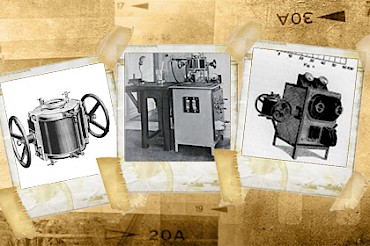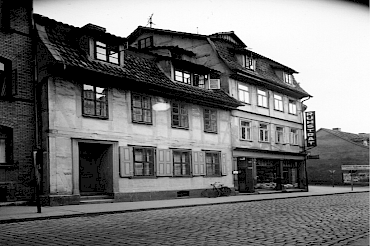Eugen Eisenmann...
...born in Stuttgart in 1911, has always attributed vitality, assertiveness, a sense of tinkering and a will to independence to his ancestors, Swabian farmers and craftsmen. Since his father died as a result of a war-related illness, he had to assume responsibility for the family at an early age. After attending school, he completed a locksmith apprenticeship and an engineering internship at Daimler. He completed the subsequent studies at the Esslingen School of Mechanical Engineering in 1936 with an engineering degree. At that time Eugen Eisenmann was one of the best alpinists of his time. He planned, organized and led a German expedition to the Kilimanjaro and Rwenzori regions and wrote a book about it. Extreme climbing came to a voluntary end when he decided to start a family, from which two daughters and a son were born.
Even in his first position as an engineer in a piston factory, he optimized series production through design improvements, many of which lasted for many years. At the beginning of the war, he was technical manager of a malleable iron foundry. In order to avoid being drafted into the Waffen SS, he volunteered for a Mountain Infantry Division. Returning wounded, he found his parents' house and his own household in ruins, his family evacuated and his professional existence shattered.
The new start began as a sales engineer for tools and machines. Groundbreaking research into artificial wood drying and constructive ideas for putting them into practice led almost inevitably to the founding of an engineering office and, soon after, to the establishment of his own manufacturing company called Eisenmann. In 1951, Eugen Eisenmann began to manufacture wood drying systems in Stuttgart-Gaisburg with a few select employees. After only a short time, painting equipment was added, initially for the wood sector and later also for the metal sector.
In 1977, Eugen Eisenmann handed over the management of the company to his son, Peter Eisenmann.
Eugen Eisenmann died in 1991.








